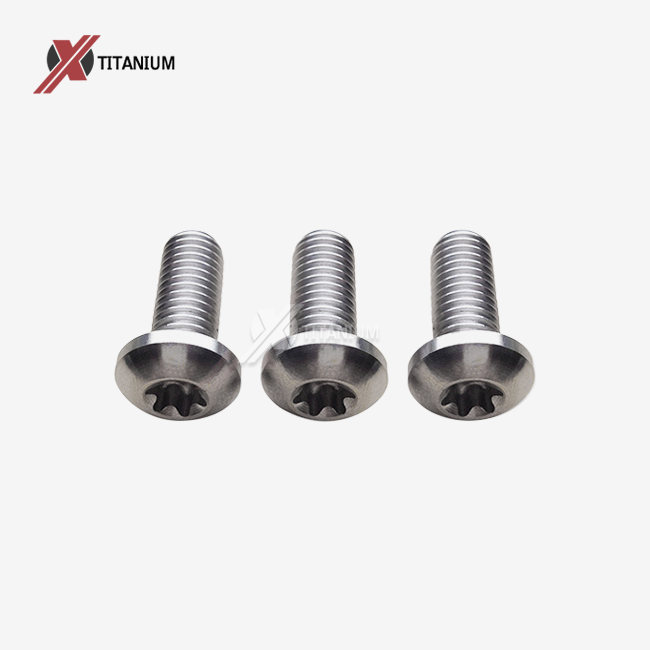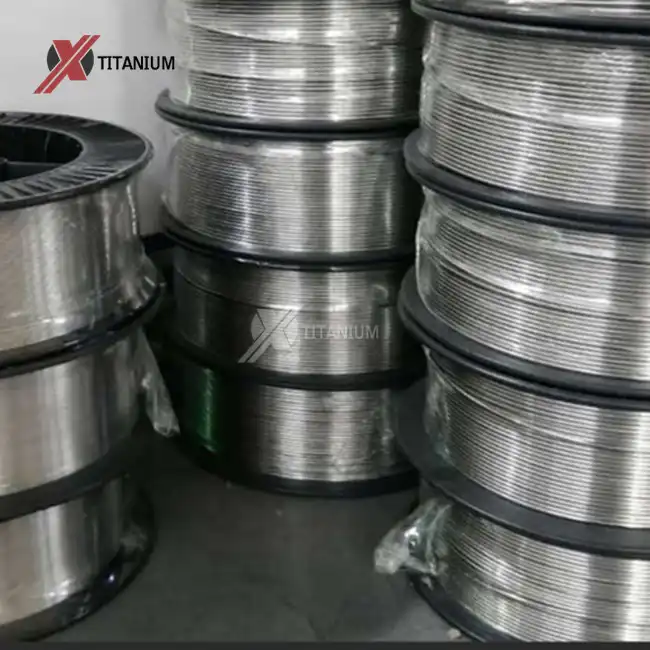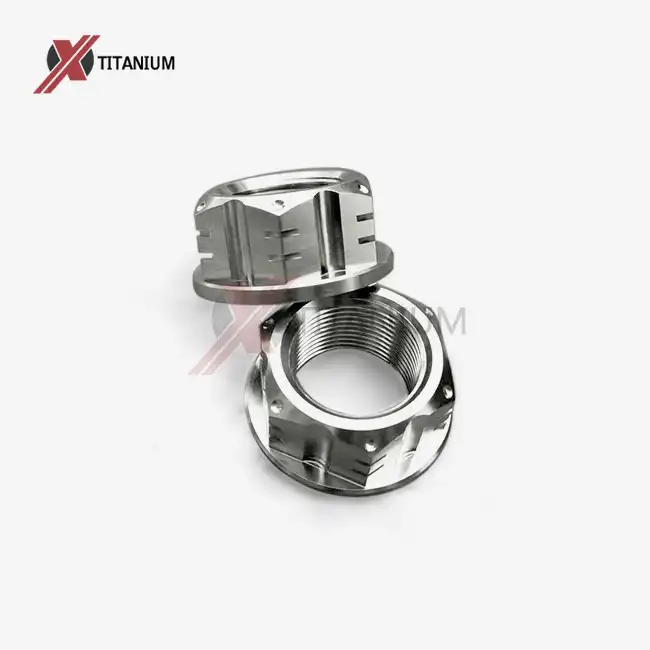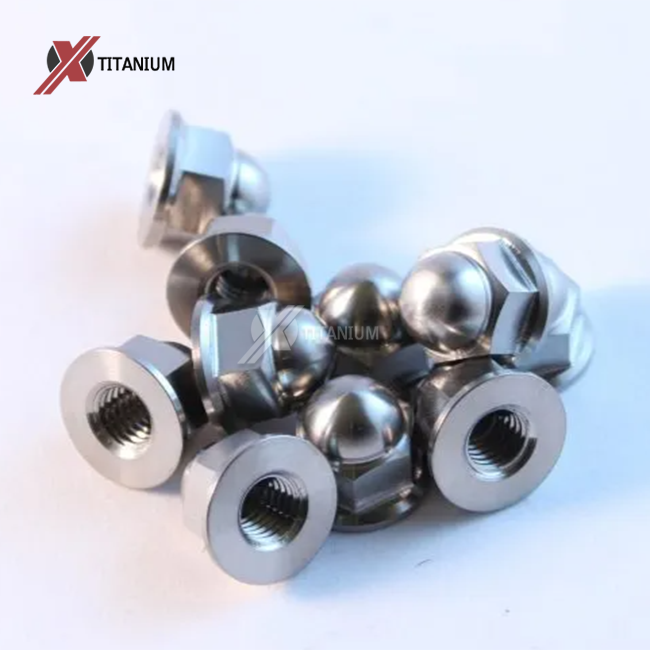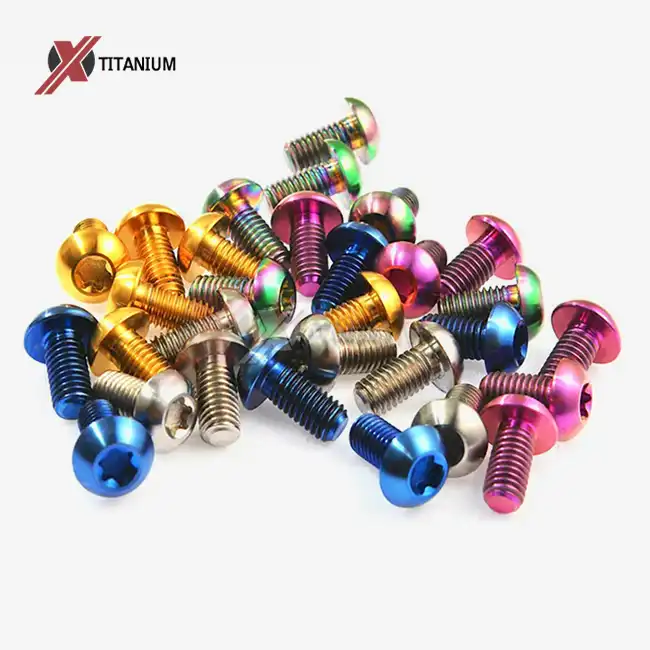The Remarkable Properties of Titanium in Aerospace Fasteners
Titanium has emerged as a game-changer in the aerospace industry, and its application in button head screws showcases the material's exceptional qualities. The aerospace sector demands materials that can withstand extreme conditions while maintaining structural integrity. Titanium button head screws meet these requirements with flying colors.
One of the most significant advantages of titanium is its impressive strength-to-weight ratio. This property allows engineers to design aircraft components that are both robust and lightweight. By utilizing titanium button head screws, manufacturers can significantly reduce the overall weight of an aircraft without compromising on structural strength. This weight reduction translates directly into improved fuel efficiency and increased payload capacity, two critical factors in the competitive aerospace industry.
Corrosion Resistance: A Key Factor in Aerospace Applications
Another remarkable property of titanium that makes it ideal for aerospace fasteners is its exceptional corrosion resistance. Aircraft are exposed to a wide range of environmental conditions, from high-altitude low temperatures to humid coastal environments. Titanium's natural resistance to corrosion ensures that button head screws made from this material can maintain their integrity over extended periods, even in harsh conditions.
The corrosion resistance of titanium button head screws is particularly valuable in areas of the aircraft that are prone to moisture accumulation or exposure to corrosive substances. This resistance not only extends the lifespan of the fasteners themselves but also protects surrounding components from potential degradation caused by corrosion products.
Thermal Stability: Maintaining Integrity Under Extreme Temperatures
Aerospace applications often involve exposure to extreme temperature fluctuations. Titanium button head screws excel in this aspect due to their excellent thermal stability. The material maintains its strength and structural properties across a wide temperature range, from the frigid conditions at high altitudes to the heat generated during high-speed flight or near engine components.
This thermal stability ensures that titanium button head screws maintain their tight fit and structural integrity throughout various flight conditions. It also reduces the risk of thermal expansion mismatches between fasteners and the materials they join, which could otherwise lead to loosening or structural weaknesses over time.
Manufacturing Processes and Quality Control for Titanium Button Head Screws
The production of titanium button head screws for aerospace applications involves sophisticated manufacturing processes and rigorous quality control measures. These procedures ensure that each fastener meets the exacting standards required for use in aircraft construction and maintenance.
The manufacturing process typically begins with high-grade titanium alloys, such as Ti-6Al-4V (Grade 5), which offers an optimal balance of strength, weight, and workability. The alloy is carefully machined using advanced CNC (Computer Numerical Control) technology to achieve precise dimensions and tolerances.
Surface Treatments and Finishes
After the initial machining process, titanium button head screws often undergo various surface treatments to enhance their properties further. These treatments may include:
- Anodizing: This electrochemical process creates a protective oxide layer on the surface of the screw, further improving corrosion resistance and providing options for color coding.
- Nitriding: A heat treatment process that diffuses nitrogen into the surface of the titanium, increasing hardness and wear resistance.
- Polishing: A mechanical process that smooths the surface, reducing friction and improving aesthetics.
The choice of surface treatment depends on the specific requirements of the aerospace application, considering factors such as the operating environment, load-bearing requirements, and assembly processes.
Rigorous Testing and Certification
Quality control is paramount in the production of aerospace-grade titanium button head screws. Each batch undergoes a series of tests to verify its mechanical properties, dimensional accuracy, and material composition. These tests may include:
- Tensile strength testing
- Hardness testing
- Chemical composition analysis
- Microscopic examination for structural integrity
- Salt spray testing for corrosion resistance
Additionally, aerospace fasteners must comply with industry standards and specifications, such as those set by the Aerospace Industries Association (AIA) or the Society of Automotive Engineers (SAE). Certification to these standards ensures that titanium button head screws meet the stringent requirements for use in aircraft construction and maintenance.
Applications and Innovations in Aerospace Design
Titanium button head screws find applications throughout modern aircraft, from the airframe to interior components. Their unique properties make them particularly valuable in areas where weight reduction, corrosion resistance, and structural integrity are critical.
Structural Applications
In airframe construction, titanium button head screws are often used to join composite materials or in areas where traditional steel fasteners would be too heavy. Their low weight contributes to the overall weight reduction strategies employed by aircraft manufacturers to improve fuel efficiency and performance.
These screws are also favored in areas subject to high stress or vibration, such as engine mounts or landing gear assemblies. The button head design provides a smooth, low-profile finish that minimizes drag and reduces the risk of snagging or interference with other components.
Interior and Systems Integration
Beyond structural applications, titanium button head screws play a role in aircraft interiors and systems integration. Their corrosion resistance makes them ideal for use in galley areas or lavatories where moisture exposure is common. In avionics systems, these fasteners provide secure mounting for sensitive electronic components while contributing to overall weight reduction efforts.
Future Innovations and Trends
As aerospace technology continues to evolve, so too does the development of titanium button head screws. Emerging trends include:
- Advanced coatings and surface treatments to further enhance performance characteristics
- Integration of smart materials or sensors for real-time structural health monitoring
- Development of hybrid fasteners combining titanium with other advanced materials
- Exploration of additive manufacturing techniques for custom fastener production
These innovations promise to expand the capabilities and applications of titanium button head screws in future aerospace designs, contributing to safer, more efficient, and more advanced aircraft.
Conclusion
Titanium button head screws represent a critical component in the ongoing evolution of aerospace technology. Their unique combination of strength, lightweight properties, and corrosion resistance makes them indispensable in modern aircraft design and construction. As the aerospace industry continues to push the boundaries of performance and efficiency, these specialized fasteners will undoubtedly play an increasingly important role.
For those seeking high-quality titanium button head screws and other titanium products for aerospace applications, Baoji Chuanglian New Metal Material Co., Ltd. offers a wide range of solutions. With over a decade of experience in titanium product manufacturing and research, we are well-equipped to meet the exacting standards of the aerospace industry. To learn more about our titanium fasteners and other products, please contact us at info@cltifastener.com or djy6580@aliyun.com.
